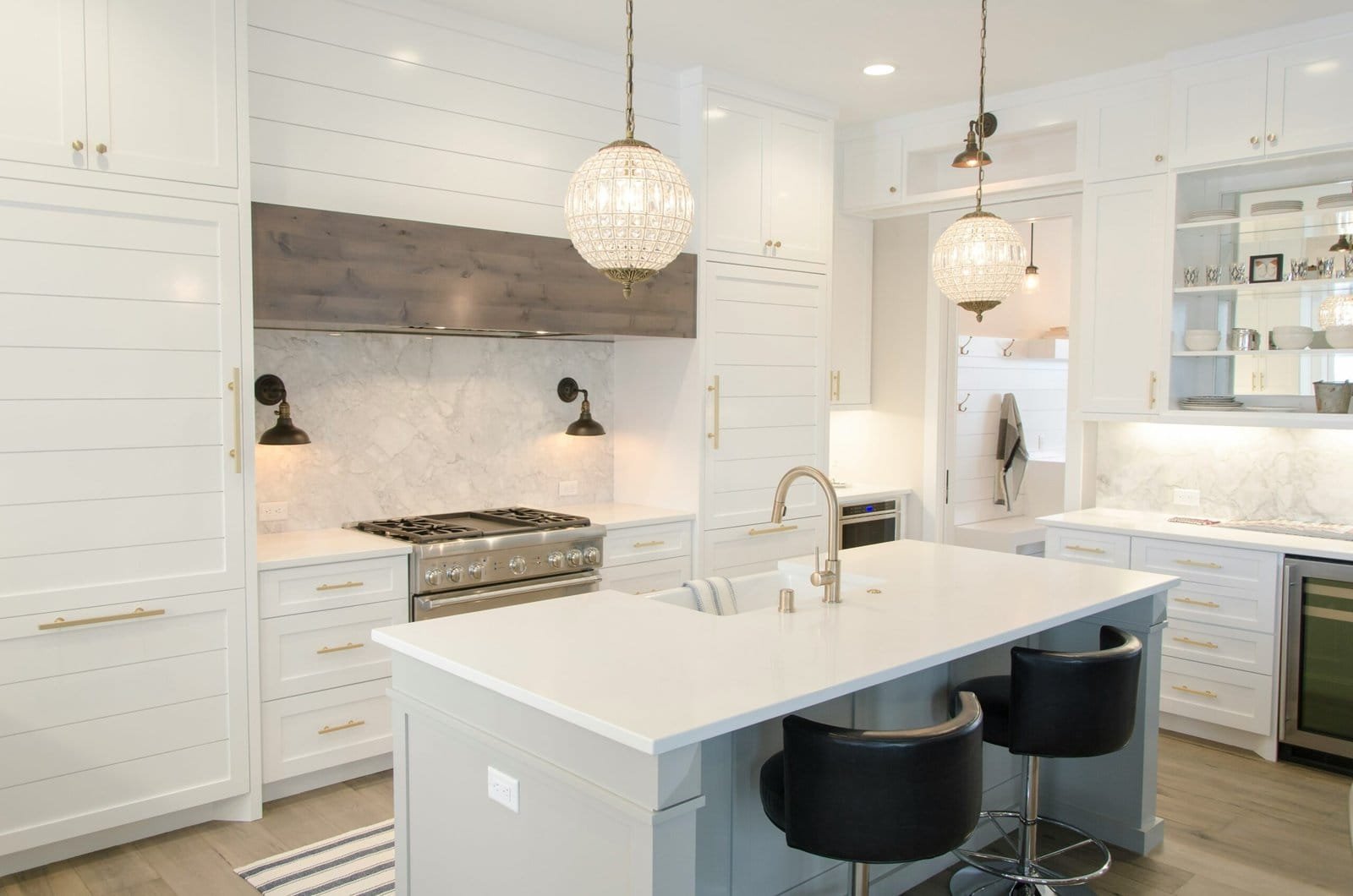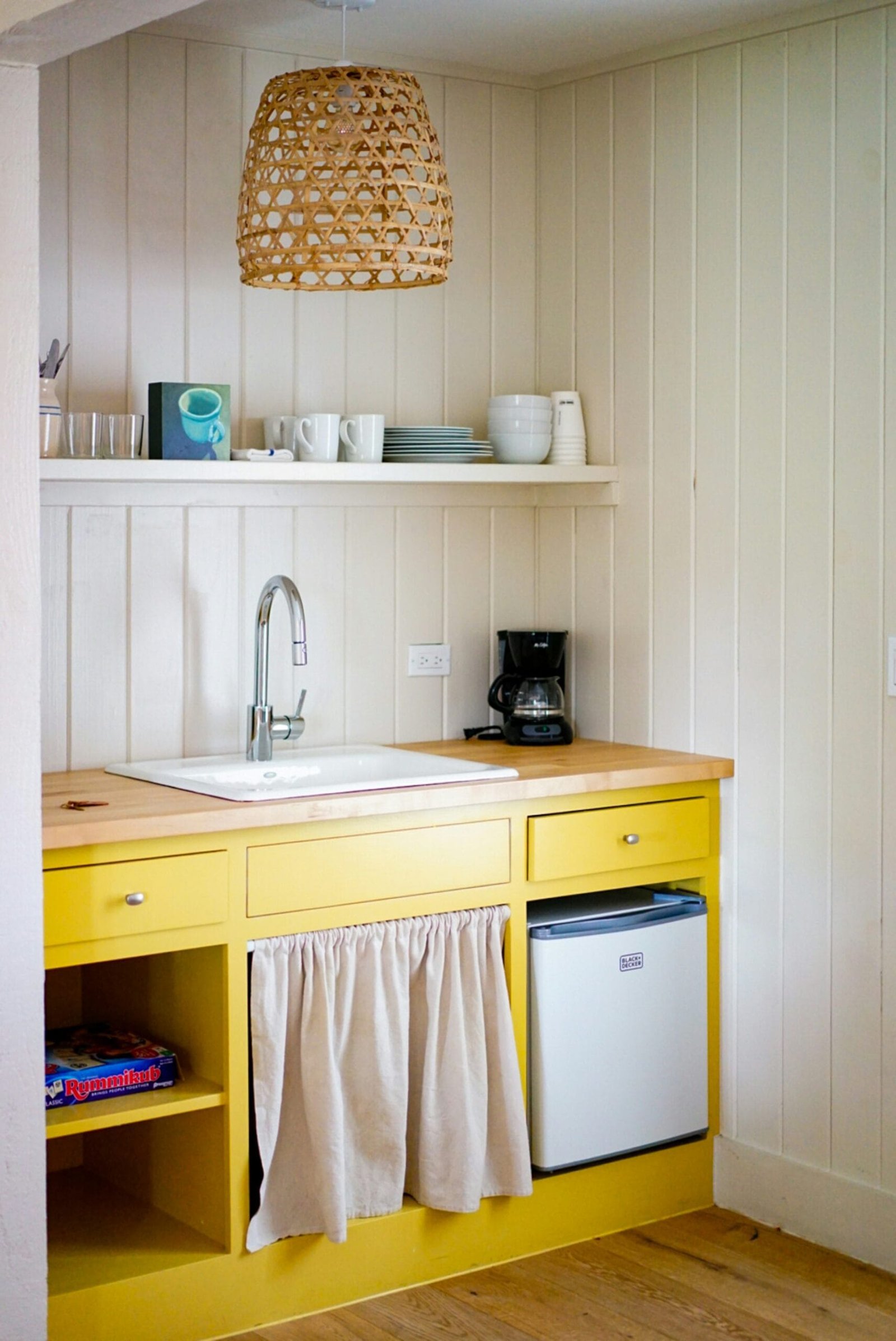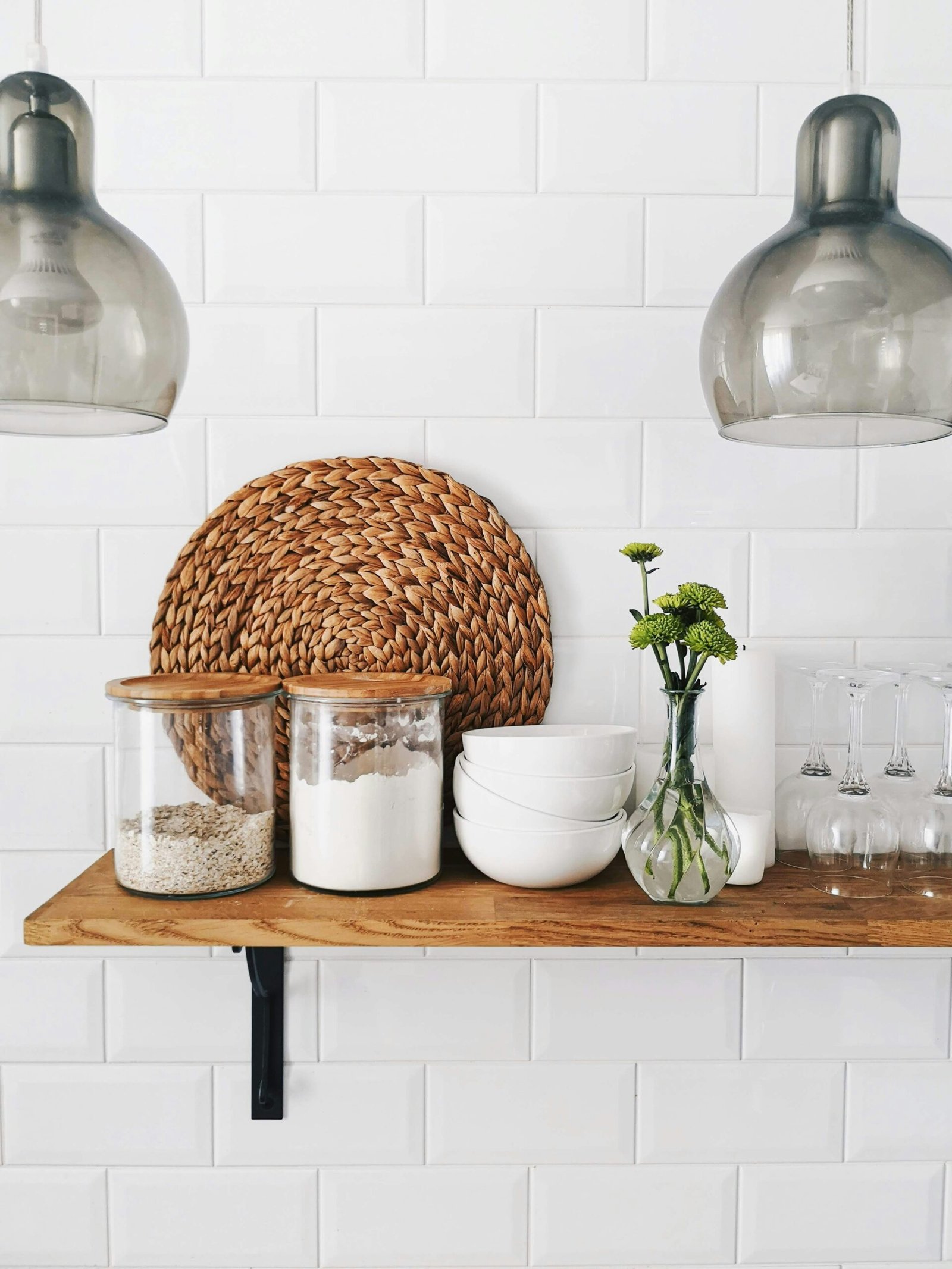Explore the importance of sustainable kitchen countertops crafted from eco-friendly materials. Discover various options like bamboo, recycled glass, and reclaimed wood that enhance your kitchen while reducing environmental impact. Learn about durability, certifications, and maintenance tips essential for creating an eco-conscious home. Make informed choices that contribute to a healthier living environment and a smaller carbon footprint. Join the movement towards sustainable living in your kitchen renovations.
Introduction to Sustainable Kitchen Countertops
Sustainable kitchen countertops refer to surfaces crafted from environmentally friendly materials that have a low impact on both human health and the planet. These countertops are produced using renewable resources, recycled materials, or responsibly sourced natural products. As homeowners increasingly strive for eco-conscious living, there is a growing interest in these sustainable options for kitchen renovations. Making informed choices about kitchen countertops not only impacts individual homes but also contributes to broader environmental health.

The importance of selecting sustainable materials for kitchen renovations cannot be understated. The kitchen is often the heart of the home, and the materials used within it can significantly influence energy consumption and resource usage. Traditional countertop materials can be resource-intensive, generating substantial carbon footprints during extraction and processing. By choosing sustainable kitchen countertops, homeowners can play a pivotal role in reducing environmental harm, promoting conservation, and fostering a healthier living environment.
Please, read our post and do not forget to check our YouTube channel “Grig Stamate”:
https://www.youtube.com/@GrigStamate
You will find there, thousands of designing, furnishing, and decorating ideas for your home interior and outdoors.
Allow me to mention three of them:
Tour of the Best 50 Modern Kitchen Designs, #2 (video)
How to Style a Modern Open Concept Space for Your Kitchen, Dining, and Living Room (video)
Small Spaces #6, Cool Dining Room – Kitchen Combinations (video)
On a personal note, my decision to opt for sustainable countertops was inspired by a growing awareness of the environmental implications of my choices. Upon researching the various materials available, I discovered the range of eco-friendly options, from bamboo to recycled glass. The process led me to reconsider not only my kitchen renovations but also other aspects of my home. I encourage readers to reflect on their choices and consider whether they have ever thought about the environmental impact of their home renovations. It is empowering to acknowledge the role we play in shaping the future of our planet through sustainable decisions.
Explore Eco-Friendly Materials
In the quest for sustainable kitchen countertops, exploring eco-friendly materials is crucial. Various options exist that not only enhance the aesthetic appeal of your kitchen but also contribute positively to the environment. Bamboo is one of the most popular materials, renowned for its rapid growth and renewability. This grass can reach maturity in just three to five years, making it an incredibly sustainable choice. Additionally, bamboo possesses natural antibacterial properties, which can be an asset in kitchen environments.
Another notable eco-friendly material is recycled glass. Countertops made from this unique material are not only visually stunning but are also a fine example of sustainability in practice. The process of creating recycled glass countertops involves melting down old glass items, such as bottles and jars, to form new, durable slabs. These countertops offer a myriad of colors and patterns, allowing homeowners to express their style while supporting waste reduction efforts. Fun fact: using recycled glass in countertops can help divert millions of tons of waste from landfills each year.
Reclaimed wood is yet another eco-friendly option that appeals to those who appreciate natural aesthetics. Sourced from old barns, factories, or even furniture, reclaimed wood countertops tell a story and exhibit unique character and charm that new woods cannot replicate. This material is not only sustainable but also reduces the demand for virgin wood, making it an excellent choice for environmentally conscious consumers. The processing of reclaimed wood often involves minimal energy use, aligning with principles of sustainability.
As you consider options for sustainable kitchen countertops, think about which materials resonate most with your style and ethical values. Each material offers distinct benefits, allowing you to create a beautiful and environmentally friendly kitchen space.
Consider Durability and Longevity
When selecting a kitchen countertop, prioritizing durability and longevity is essential for achieving a sustainable home. High-quality materials not only withstand the rigors of daily use but also reduce the frequency of replacement, which ultimately leads to lower environmental impact. Kitchen countertops endure daily wear, tear, and exposure to moisture, heat, and chemicals, and therefore, choosing materials that offer exceptional durability can significantly influence their lifespan.
Granite and quartz are among the most durable options available. Both materials are resistant to scratching and staining, making them suitable for a busy kitchen environment. Granite, being a natural stone, provides a unique aesthetic appeal, while quartz, which is engineered, offers consistent patterns and colors. A properly sealed granite countertop can last decades, whereas quartz countertops typically come with warranties extending up to 25 years. Understanding the manufacturing processes and the inherent properties of various materials can help homeowners make informed decisions.
Another viable option is recycled materials, such as recycled glass or reclaimed wood. While they may not offer the same longevity as granite or quartz, their eco-friendly attributes contribute to sustainability. It is critical to evaluate the specific product durability and any protective measures, like sealants, that will maintain the countertop’s condition over time.
In my own experience, I have invested in both granite and quartz countertops, both of which have proven remarkably resilient over the years. Their ability to resist damage and maintain their appearance speaks volumes about their quality. So, what’s the longest-lasting countertop you’ve ever used? Sharing experiences about durable materials can provide valuable insights for those seeking to create a sustainable kitchen while minimizing waste.
Look for Certifications and Eco Labels
Navigating the world of sustainable kitchen countertops can often feel like a game of “label roulette.” With so many eco labels and certifications available, it’s crucial to understand what they truly represent to make informed purchasing decisions. Certifications such as Greenguard and the Forest Stewardship Council (FSC) provide a way to identify products that adhere to environmental sustainability principles.
Greenguard certification is achieved by products that have undergone rigorous testing for chemical emissions. When a product bears the Greenguard label, consumers can confidently assume that it contributes to better indoor air quality by minimizing harmful VOCs (Volatile Organic Compounds). Such an attribute is particularly important in a kitchen, where air quality can be compromised by cooking activities. Similarly, the Forest Stewardship Council (FSC) label indicates that the wood used in your countertops comes from responsibly managed forests. This certification ensures that the materials are sourced in a manner that protects ecosystems, wildlife, and the rights of local communities.
However, it’s easy to get lost in the maze of certifications out there. Some labels may sound appealing but lack credible backing. This is why relying on well-known certifications, like Greenguard and FSC, is essential for ensuring you choose genuine eco-friendly products. The presence of these respected certifications can guide your purchasing decisions while alleviating concerns about misleading claims.
As you embark on your quest for sustainable kitchen countertops, keep an eye out for these eco labels. Engaging with others who have navigated the same journey can provide additional insights. Share your experiences with “label roulette” and any triumphs you achieve in selecting certified products. Together, we can demystify this process and make environmentally thoughtful choices for our homes.
Reclaimed and Salvaged Materials: A Second Life
In the pursuit of sustainable kitchen countertops, reclaimed and salvaged materials present an enticing and eco-conscious option. These materials not only reduce waste but also carry a story, bringing a sense of history and character into any kitchen. Reclaimed wood, for example, can be sourced from old barns, factories, or even deconstructed homes, offering a rustic charm that new materials often lack. Each piece is unique, showcasing the natural variations in grain, color, and texture, which can significantly enhance the aesthetic value of the space.
Shopping locally or exploring secondhand options can lead to remarkable finds that breathe new life into kitchens. Flea markets, salvage yards, and even online marketplaces can yield furniture-grade wood that has been carefully sourced and processed for countertop use. DIY enthusiasts often find joy in crafting their counters from salvaged wood, turning what could be discarded into stunning focal points. A local carpenter might share stories of transforming pieces of cedar from an old cabin into a chic countertop, combining craftsmanship with sustainability.
On the other hand, reclaimed materials don’t need to be limited to wood alone. Stone countertops sourced from demolished buildings can provide an elegant touch. For instance, granite slabs used in historic structures might find their way into someone’s kitchen, merging tradition with modern design. These pieces can spark nostalgic conversations and memories, making them not just functional but also deeply personal.
As you consider sustainable options for your kitchen remodel, explore the world of reclaimed and salvaged countertops. Have you incorporated any unique reclaimed items in your home? Sharing these experiences can inspire others to embrace eco-friendliness while adding distinct character to their spaces.
Embrace Responsive Design and Natural Finishes
Responsive design in the context of kitchen countertops refers to materials that can adapt over time, showcasing their unique characteristics and enhancing their aesthetic appeal. This concept acknowledges that, just like us, our living spaces evolve and transform. Countertops crafted from natural materials—such as wood, stone, or bamboo—often display distinct markings, color variations, and textures that tell a story of their formation. These materials not only provide durability but also imbue the kitchen with authenticity, evoking a sense of connection to nature.
In contrast, synthetic finishes typically exhibit a more uniform appearance, lacking the depth and personality that natural finishes offer. While they may be easier to maintain and provide an array of design options, they can contribute to a kitchen lacking warmth and character. By incorporating natural finishes, one can create a space that feels inviting and enhances well-being. The rustic charm of butcher block countertops or the timeless elegance of granite can effectively influence the ambiance of the kitchen, encouraging a more tranquil and welcoming environment.
When selecting materials for kitchen countertops, one should consider how certain finishes evoke emotions and affect the overall vibe of the space. For instance, warm wood tones can instill feelings of coziness and comfort, while cooler stone surfaces may evoke a contemporary, sleek atmosphere. This emotional connection to materials contributes to a sustainable home by fostering an environment that individuals genuinely enjoy and appreciate, ultimately leading to a more mindful use of resources. Choosing responsive design and natural finishes promotes not only sustainability but also a kitchen that resonates with one’s personal aesthetic and emotional needs.
Maintenance Matters: Keeping it Green
In any sustainable kitchen, the maintenance of countertops plays a crucial role in their longevity and overall environmental impact. Different materials require varying levels of care, which can significantly affect their sustainability. For example, while granite countertops are durable, they often require harsh chemical cleaners that can be damaging to the planet. On the other hand, bamboo and recycled glass options might necessitate less intensive maintenance, making them more environmentally friendly choices in the long run.
It’s easy to relate to the perpetual struggle of keeping a kitchen clean—it’s like a never-ending battle, isn’t it? Between cooking splatters and the aftermath of meal prep, the kitchen countertop is a battleground that often resembles a war zone. So, what’s a green warrior to do? One effective cleaning hack is to use a mixture of vinegar and baking soda for an eco-friendly clean. This powerful duo not only eliminates tough stains but also serves as a gentle scrub without introducing harmful chemicals into your home.
Another sustainable product I recommend is a plant-based cleaner. Many options are available on the market, which pride themselves on being both effective and environmentally conscious. These not only clean but often smell pleasant, providing an aromatic experience while combatting the chaos of kitchen upkeep.
However, I’m curious to know, what quirky methods do you employ for your countertop maintenance? Do you have any DIY concoctions that seem to do the trick? Our kitchens may present a constant challenge, but sharing cleaning hacks can help all of us keep the battle at bay while remaining kind to the planet.
Countertop Effects on Indoor Air Quality
When selecting materials for kitchen countertops, the implications extend beyond aesthetic considerations to encompass indoor air quality (IAQ). Many conventional countertop materials, such as laminate and certain types of stone, can emit volatile organic compounds (VOCs). These VOCs are chemicals that can vaporize into the air, leading to potential health issues. Health concerns linked to VOC exposure range from headaches and dizziness to more severe conditions such as respiratory problems and even long-term organ damage.
My experience with countertop materials took an unexpected turn during a visit to a friend’s new home. As we admired their stunning granite countertops, I casually mentioned how beautiful they looked. However, they shared that the granite had been treated with a sealant that contained significant VOC levels. This revelation prompted me to research countertop emissions more thoroughly, leading to a startling discovery: the health impacts of similar materials often go unnoticed by homeowners. The importance of understanding how our kitchen choices can influence not only the functionality but also the health of our indoor environment cannot be overstated.
For those considering new countertops, it is crucial to assess the material’s VOC emissions. Some materials, like bamboo or recycled glass, can be excellent alternatives that minimize airborne toxins without compromising style. Additionally, the use of natural, untreated stones may offer both aesthetic appeal and improved air quality. As you contemplate your kitchen design, ask yourself whether your decor choices contribute positively to your health and well-being at home. With a thoughtful approach, your kitchen can transform into a sanctuary, combining beauty with health-conscious decisions.
Budgeting for Sustainable Choices
When it comes to creating a sustainable kitchen, the choice of countertops can significantly impact both the environment and your finances. Budgeting for sustainable countertops requires a strategic approach to balance eco-conscious options with financial constraints. It is crucial first to establish a clear budget that considers all aspects of the renovation project, including materials, installation, and potential maintenance costs. Many homeowners often find themselves grappling with the stigma that green choices must inherently come with a higher price tag. However, this does not always have to be the case.
One effective method to save money while opting for sustainable countertops is to conduct thorough research. Sources such as local suppliers, online marketplaces, and specialty stores can offer a range of prices for eco-friendly materials, such as recycled glass, bamboo, or paper composite countertops. Buying locally can further help reduce transportation emissions and costs, presenting a win-win situation. Additionally, intelligence in budgeting can also incorporate looking for clearance sales or end-of-line products, which can result in significant savings without sacrificing sustainability.
Furthermore, exploring financing options can ease the financial strain associated with a full kitchen remodel. Many banks and home improvement stores offer loans specifically tailored for energy-efficient upgrades. Additionally, government subsidies and tax incentives may be available in some regions to encourage homeowners to choose green materials and practices. Engaging with local agencies can provide valuable insights into what programs are available to you.
Budgeting for sustainable choices is a personal journey, and it often involves balancing desires with capabilities. To ensure you are making informed choices, consider how you prioritize expenditures in your renovation process. Understanding your motivations can lead to more financially and environmentally rewarding decisions as you strive to create a greener home. How do you approach your home renovation budget while considering sustainable materials?
Final Thoughts and Moving Forward
As we have explored throughout this blog post, transitioning to sustainable kitchen countertops is an impactful step towards creating an eco-friendly home. The choice of materials, such as recycled glass or sustainably sourced wood, plays a crucial role in minimizing our environmental footprint. Additionally, considering options that require less energy in manufacturing can further enhance the sustainability of our kitchen spaces. Through mindful choices, we can significantly reduce waste while enjoying the aesthetics of stylish, environmentally-conscious surfaces.
Moreover, the maintenance of these countertops should not be overlooked. Utilizing natural cleaning solutions not only preserves the life of the materials but also helps in maintaining a healthy home environment. Encouragingly, even small changes in our kitchen design can aggregate to substantial gains in sustainability overall.
As you contemplate your own journey towards a greener kitchen, remember that every step counts. Begin with a singular change, perhaps optimizing your countertop choice or supporting local suppliers. Such actions may seem trivial but can collectively lead to significant environmental benefits. The transition to a sustainable kitchen is not just an individual task; it invites a broader movement toward sustainability in our communities.
We invite you to share your thoughts and experiences regarding sustainable practices. Have you recently upgraded your countertops or adopted eco-friendly habits in your kitchen? Your insights could encourage others on a similar path. Join the conversation by leaving comments below and let us know any additional tips or alternatives you might have to offer. Together, we can inspire and support each other as we work towards greener homes for a healthier planet.
Other related posts from our website:
https://howtobuildahouseblog.com/how-to-clean-a-white-kitchen-countertop/
https://howtobuildahouseblog.com/ceramic-tile-backsplashes/
https://howtobuildahouseblog.com/kitchen-counterto/
Thank you so much for your attention.
Stay tuned. We will upload many other amazing posts to our website and videos onto our YouTube channel.
Thank you so much.
for your time and attention.
Best Regards
See you to another post,
Bye, Bye



No Responses